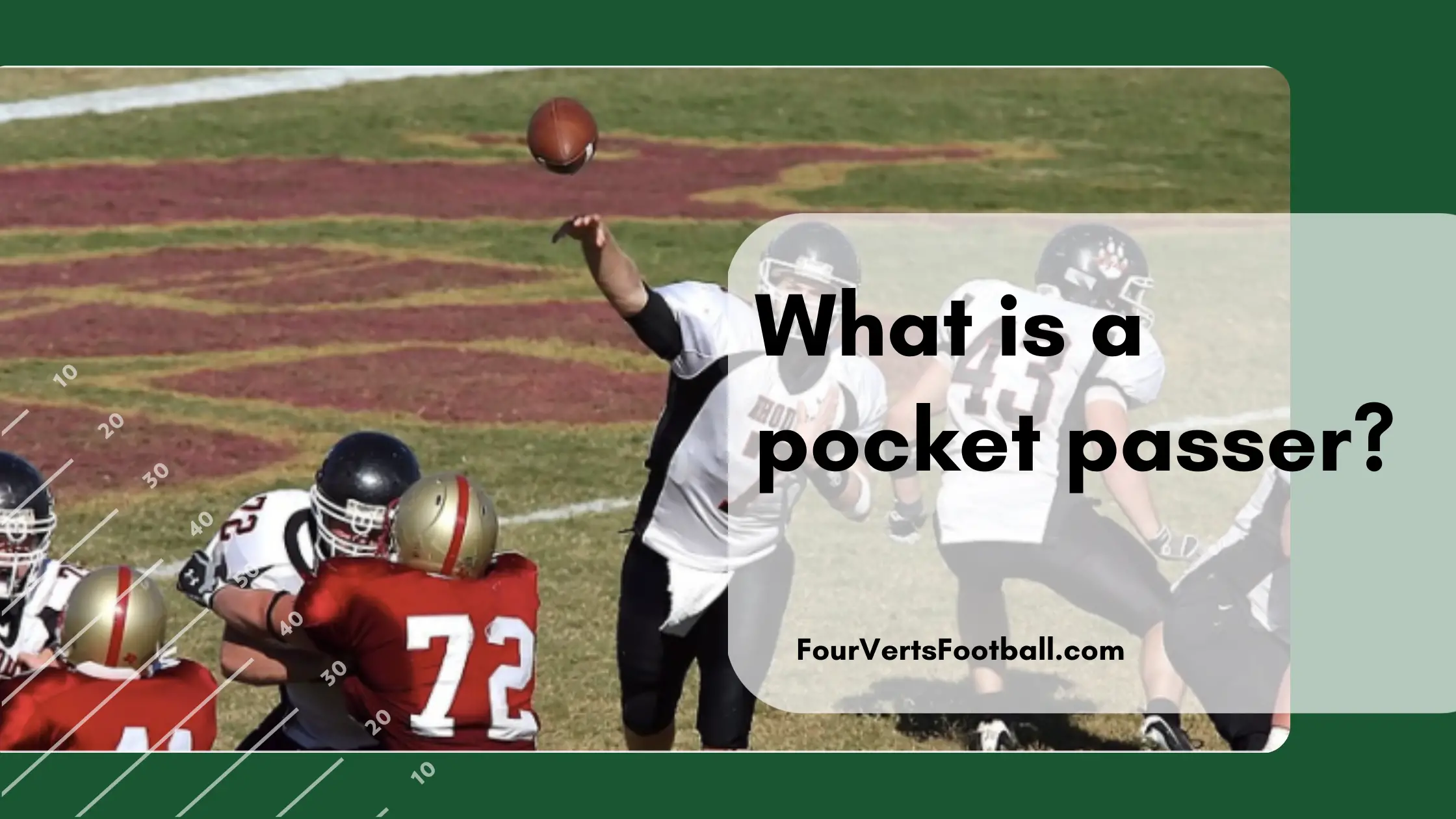If you watch football on Sundays you have likely heard the announcer refer to a quarterback as a pocket passer. Though this is a fairly commonly used term it is almost never explained on the broadcast.
A pocket passer is a quarterback who gains the vast majority of his yards from throwing the ball. These quarterbacks are not very mobile and tend to avoid scrambling and outrunning defenders.
A pocket passing quarterback beats teams using his football IQ and arm strength.
A pocket passer is considered a traditional quarterback as this was the role of a quarterback prior to dual-threat qbs.
Previously defensive linemen were not nearly as athletic or fast as they are currently. This made the pocket passer style of quarterback more popular than it is today.
Strengths Of Pocket Passers
Like any style of quarterback pocket passers have their strengths and weaknesses. Let’s run through which attributes have allowed pocket passers to succeed in the NFL.
Accuracy
Out of all the traits a pocket passer needs to have accuracy is one of the most important. Pocket passers are incredibly reliant on their ability to throw the ball which is why they tend to have incredible accuracy.
If a pocket passer has made it to a high level of football without speed you can bet they can throw an accurate ball. This also allows this style of quarterback to be less likely to turn the ball over.
Arm Strength
Arm strength is another strength of a pocket passer. You will find the majority of pocket passers have incredible arm strength.
It is important that you know arm strength doesn’t just refer to how far you throw the ball. It also means the speed and power in which you can throw intermediate and short routes.
Getting a ball into a tight window is much easier when the ball is thrown with power. This will allow pocket passers to complete more difficult passes than most dual-threat quarterbacks.
Football IQ
Oftentimes pocket passer quarterbacks will have a quality football IQ. This is because throwing from the pocket each play requires the ability to read the defense effectively.
This style of quarterback often has the upper hand when it comes to reading defenses and making progressions.
Lowered Injury Risk
Another factor that must be taken into account with pocket passers is that they have a lower injury risk.
These players are going to take fewer hits throughout the game than a rushing qb. Though dual-threat qbs can typically take a hit better, they are going to get hit more often.
There is a reason qbs like Josh Allen, and Patrick Mahomes are running the ball less and less.
Once their passing game had reached maturity their coaches knew keeping them from taking hits while carrying the ball would reduce their chance of injury.
Weakness Of Pocket Passers
Now that we know what a pocket passer can bring to your team let’s go over their weaknesses.
Athletic Ability
The main issue with pocket passers is that they do not have much athletic ability aside from throwing the ball.
Even a quarterback that doesn’t plan on running is going to find a few situations per game in which having good speed would be beneficial.
The slow speed and agility of pocket passers cost teams chances to convert short-yardage situations. As well as limits their ability to expose gaps in the run defence.
Offensive Line Reliant
We’ve seen the plays in which Lamar Jackson jukes out two or three d-line prior to completing a pass or making a run for the first down.
In these plays the O-line failed to do their job yet the qb made it happen anyways.
This is much rarer for pocket passers. Much like a game manager qb if the pocket collapses on a pocket passer they do not have many options.
Not only do pocket passers not have the ability to run, but they also have a much harder time extended plays as well.
Examples Of Pocket Passing Quarterbacks
The two most popular examples of pocket passing quarterbacks are Tom Brady and Peyton Manning. Both of these quarterbacks offered their team great accuracy and football IQ on the field. These sorts of players are often considered more valuebale due to the way the play in a typical pro style offense. .
All without having the ability to threaten the defence with their feet.
These examples are of course the top end of pocket passer quarterbacks. Other examples of pocket passing qbs could also be Joe Flacco or Mark Sanchez.
Do you want to determine if someone is a pocket passer or not? Just imagine them attempting a read option.
If you believe they could run that play they are likely a dual-threat qb. If they would not be able to effectively run a read-option then they are likely a pocket passer quarterback.
That is all pocket passing QBs in football to learn more about other quarterback styles learn about gun slingers or stop gap quarterbacks.

